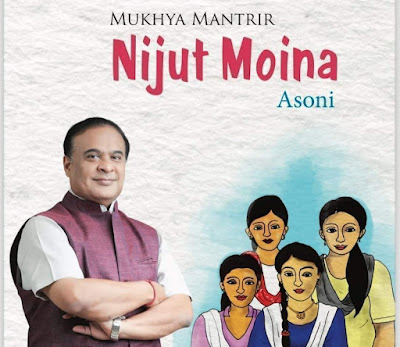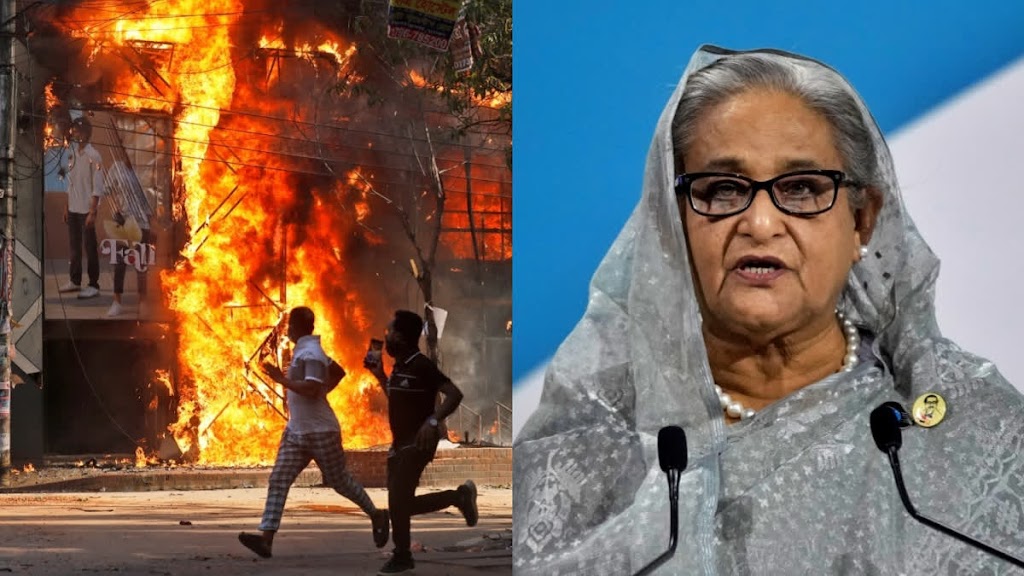Religious Fundamentalism- Meaning & Origin
Religious Fundamentalism?
Religious fundamentalism is a major movement supporting belief of a community (or individuals) in absolute authority of the sacred texts of its own religion or faith. They are the true believer of their own religion that their religion is beyond any fault and thus, should be forced on others.
For religoius fundamentalists religion dictates every sphere of their day to day life, for which they decided to involve the entire society into their own self belief system, often by the use of their religious force.
There is no scope for scrutiny or even criticism of the scriptures on logical explanations and scientific evidences.
Most religions of the earth tend to be associated with fundamentalist elements. Hinduism could also be a posh of multiple sets of beliefs advocated by an outsized number of holy texts, including the Vedas, the Bhagavad Gita, the Upanishads, and thus the Brahmanas.
Hence, the universal beliefs of this religion still dilute the attitudes of its few fundamentalists.
The Islamic fundamentalists believe the interpretation of the Holy Quran and Hadiths, and decide to enforce the shariah into every aspect of Islamic life.
Origin of Religious Fundamentalism–
Modern religious fundamental as a movement is assumed to possess started in us among the conservative Presbyterian theologians in the late 19th century. In the meantime by 1920 it started spreading towards the Baptists and other religions.
The key objective is that this movement was to reaffirm five theological tenets including infallibility of every word of the Bible; virgin birth of Jesus; bodily resurrection of Jesus, that Jesus’s death was the atonement for sin and historical reality of Jesus’s miracles.
People who start supporting to those five fundamentals were called Fundamentalists.
However, later the word was used for the Protestant Christians who had a separate attitude from modernity . But today most of the religions of the earth tend to be associated with fundamentalist elements.
* More Exclusive Click here 👉 Panchayati Raj System in India
Religious Fundamentalism in India—
The Indian subcontinent had had a chequered history of communal conflicts and inter-religious dissensions most of the time which played a vital role in its socio-political landscape. In pre-partition era, British policy of ‘divide and rule’ was in large measure considered to be responsible for interfaith divide.
In 1947 after the partition, India very strongly emerged as a heterogeneous society in the world with very strong divisive influences.
The Indian government addressed divisive internal pulls and urges in several ways. In response to the strain of linguistic minorities, in the year 1956 State Reorganisation Act was came into force and the government of India decided to form the states on linguistic basis which was undertaken following an inquiry by the State Reorganisation Commission.
The founding fathers of Indian Constitution were cognisant of the maze of socio-religious framework of India then they envisioned India as a secular polity.
Nehru , pertaining to secularism, means “free play of religions, subject only to their not interfering with one another or with the essential conception of our state.”
Dr B R Ambedkar was of the view that a secular state meant “that this Parliament shall not be competent to impose any particular religion on the rest of the people.”
But in recent times the Hindu chauvinistic factions and parties like -BJP (Bhartiya Janta Party), Shiv Sena , RSS (Rashtriya Swayamsevak Singh), VHP (Vishwa Hindu Parishad) – this political parties missed not a single opportunity to communalise the national politics aiming towards capitalising on Hindu votes for their political benefit.
Still the Indian National Congress party remained committed to secular values till Nehru’s premiership lasted and his successors didn’t recoil from pandering to communal differences. But subsequent demolition of Babri Mosque fuelled the militant sentiments among the Indian communities.
The demolition of Babri Mosque on December 6, 1992 couldn’t are the results of a spontaneous outburst of Hindu anger against assumed desecration of sacred site.
Again then the Coimbatore riots of 1997 were the first major clash between Hindus and Muslims in Southern India. This wasn’t the highest in 2002 the western Indian State of Gujarat witnessed a deadly carnage.
Conclusion–
All of these incidents depict a dark picture of ‘secular India’, unless and until an immediate efforts and actions are not taken, this vital socio political evil always challenge the Indian society. For which it will not easy to come out from this problem. Therefore at present its necessary to understand the sole meaning of Nehru’s secular ideas and Gandhi’s satyagarha again.
Rise of Hindu Fundamentalism in India—
=> Hindutva is the predominant form of Hindu nationalism in India. In the year 1923, the term Hindutva was popularised by Vinayak Damodar Savarkar . It’s championed by the Hindu nationalist volunteer organisation Rashtriya Swayamsevak Sangh (RSS), Vishva Hindu Parishad (VHP), Bharatiya Janata Party (BJP) and other organisations, collectively called the Sangh Parivar.
Hindutva—what is it? —
The political ideology of Hindutva is, consistent with its followers, an assertion of ‘Indian identity’ and ‘Indian nationhood’. The Hindutva ideology has been claimed as cultural, civilizational, and non-religious and from very beginning it worked for the well-being of all Hindus, Sikhs, Buddhists, Jains, and Lingayats.
Hindutva promotes the Gita—which, historically, has been a holy text for the Hindus. Although the Gita is accepted as inspirational by many Hindus, particularly since the beginning of the 19th century.
Hindutva which whole heartedly promotes the ‘Hindu values’, the ‘Hindu way of life’, a ‘common history’, ‘common ancestry’ and ‘common Indian culture’ also as a ‘common Civil Code’ and economic process that accords with ‘native ethics and morals’ for the well being of Hindus.
Rise of Hindutva–
Hindutva has grown for 2 reasons:
• Hindutva presents itself as clean and dedicated to putting together up the state , in contrast to the greed and selfishness of the generations of political leaders that followed the idealists who led India to independence.
• The RSS and BJP are ready to find backers to fund the training into a disciplined cadre of these who are stop from the immense privileges of the highest castes.
Concepts and Issues —
The Hindutva ideology has focused on the subsequent nationalist issues:
• Jammu and Kashmir as an integral, inseparable a part of India.
• Implement social justice, reservations and rural Indic interests consistent with the Hindutva model.
• Educating the Indian youth the Hindutva-version of Indian history, revising the textbooks.
• Ayodhya and other sites of historic religious dispu tes.
• Strengthen the defence forces of India.
Features or Characterstics of Fundamentalism—
(1) Dualistic Thinking:
Fundamentalists are inclined to divide the planet into clear binary categories. you’re either good or bad, right or wrong, with us or against us. there’s little room for nuance, qualification, and probabilities within the mind of the fundamentalist.
(2) Paranoia:
Fundamentalists tend to possess deep feelings of suspicion, bordering on rage, directed towards those that fall on the incorrect side of the dualistic dividing lines. This paranoia is typically delivered to the surface during a group context.
(3) Apocalypticism:
An obsession with the last word ends for society and humanity. Usually has two components. First, the will to witness or cause the demise of this sort of existence; and second, the will to participate during a new beginning.
(4) Charismatic Leadership:
Fundamentalist groups are often founded by charismatic leader(s). Followers tend to be dedicated to these leaders. A cult of leadership often arises.
(5) Totalised Conversion Experience:
If the fundamentalist enters the group from the surface (either from another ideology or from a state of apathy), then they become totally immersed and committed to the fundam entalist viewpoint.
Towards the beginning of the last century, it had been thought that politics and religion were drifting part. Political theorists believed that in several ways, secularization was intergral to modernization.
By the 1980s, it became clear that religious activism was faraway from being confined to the Islamic world and new politicized movements were occurring in virtually every religious tradition.
The Conclusion gives a clear cut summary of the reasons for the recent revival of faith regarding the rise of fundamentalism. Religion, in certain cases, the religious differences, would be a vital component in forming the construction of national identity.
Religious feeling has also been invoked within the course of the struggle against colonialism. Religious rhetoric can still mobilize and motivate.
_Thank You_



